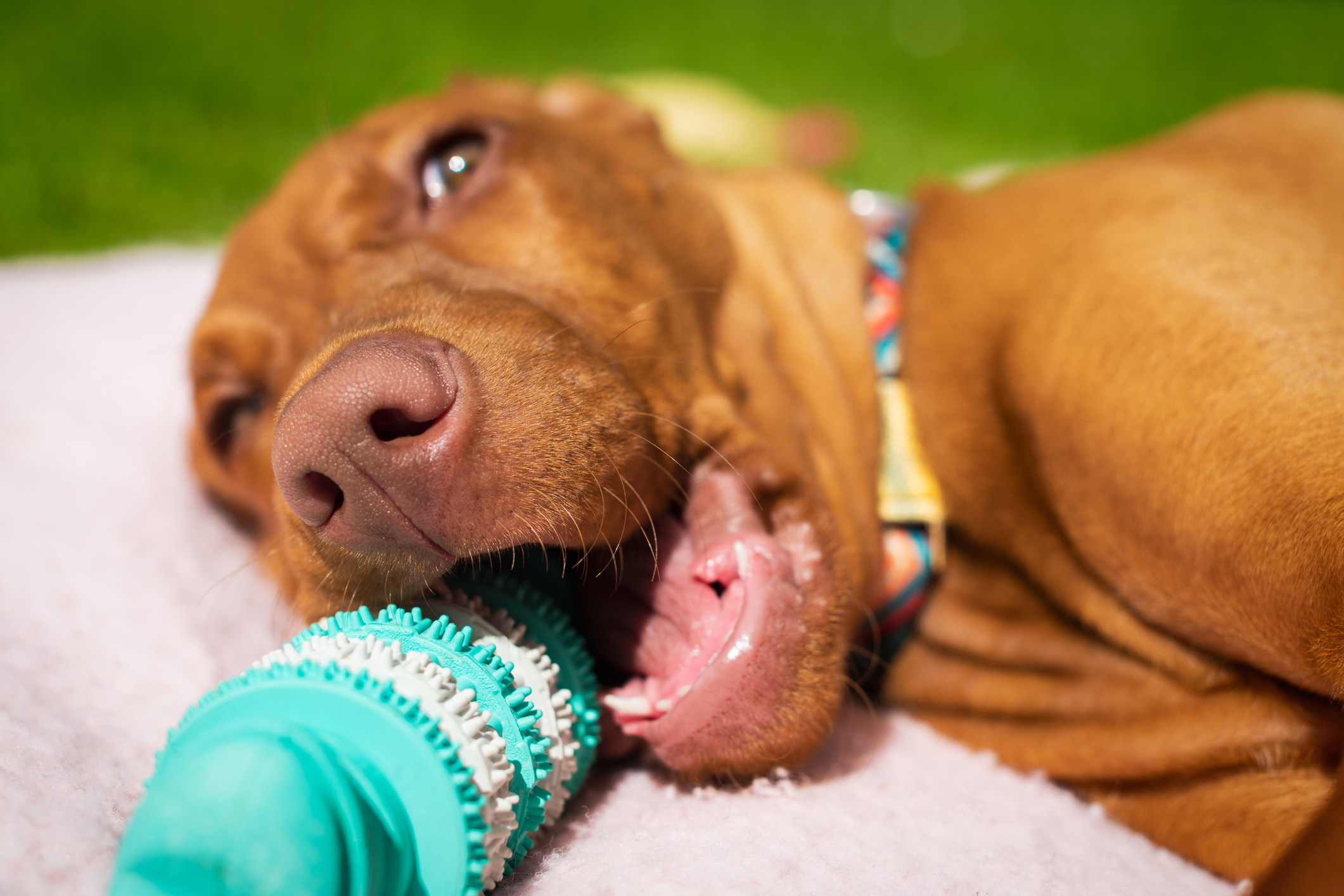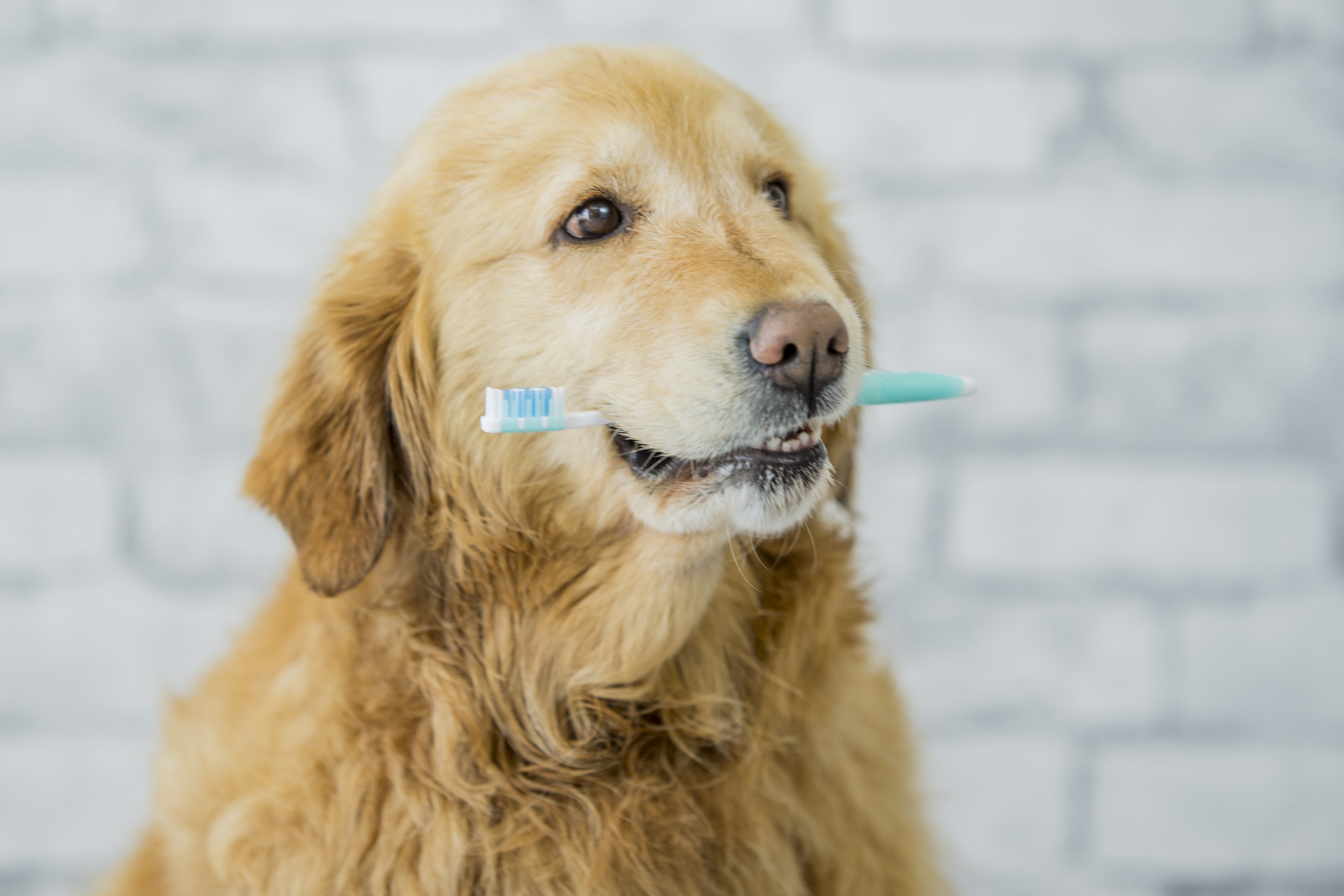
Do Dental Treats Actually Work for Dogs?
Pet oral hygiene is just as important for pets as it is for people. Like humans, dogs are susceptible to plaque buildup and tooth decay if their teeth aren’t taken care of throughout their lives. Unfortunately, brushing a dog’s teeth isn’t nearly as easy as it sounds.
In an effort to make dental care as easy as possible, many pet parents turn to dental treats. But how effective are they, and are they sufficient for your furry friend’s dental care?
What are dental treats for?
Most dental treats are tough sticks of edible material that your pup finds appetizing. As your pup gnaws on the treat, the treat is supposed to scrape plaque off the surface of the teeth, preventing it from hardening into tartar that can lead to gum inflammation. This process may also help keep your dog’s breath fresher due to the lack of bacteria.
These treats are similar to dental toys that pets can chew, but they are edible and tasty, so your dog gets a nice treat while cleaning their teeth.

Do they actually work?
There is logic behind the way dental treats operate, and they may reduce the amount of plaque on your dog’s teeth. However, if your dog doesn’t chew on the treat for long enough or breaks it up and swallows it almost immediately, the treat is unlikely to offer many benefits.
When used correctly, dental treats certainly scrape plaque off more effectively than kibble, which many pet parents mistakenly believe can aid in oral health. Unless it’s a specially formulated dental diet, dry kibble is not effective at removing plaque.
Although many dental treat products boast about producing great dental hygiene in dogs, not all dental treats are as effective as they claim to be. Certain types of products have been identified as being more effective for dental care based on research trials. Some of these might be marked with a seal from the Veterinary Oral Health Council (VOHC).
When selecting dental treats for your pet, look for those that have been approved by the VOHC for the best results. Also consider your dog’s size. A small treat in a large dog’s mouth is unlikely to make much of a difference, since they can swallow it faster. Also think about how many calories the treats contain and how they factor into your dog’s daily diet.
Drawbacks of dental treats
Dental treats can have an impact on the amount of plaque built up on your pet’s teeth, but there are some drawbacks to their use. First, most dental treats are only capable of reaching the surface of the teeth on the front and back. This leaves the crevices between the teeth and under the gum line largely untouched, allowing bacteria and plaque to accumulate.
Second, there’s no guarantee that your dog will chew on the treat evenly across all their teeth. They might prefer to chew on one side, meaning plaque removal could be uneven across the mouth.
Lastly, while dental treats may be capable of knocking some of the plaque off of your dog’s teeth, they’re really no substitute to thorough oral care that includes brushing and professional cleaning. If dental treats are the only forms of oral care your pet is receiving, they’re probably at risk of developing dental problems later in life.
Create a well-rounded oral hygiene plan for your pet

Although dental treats might have some impact on your dog’s dental hygiene, they’re really no substitute for regular brushing and other aspects of oral care. It’s still very important for pet owners to brush their dog’s teeth regularly (every day, if possible).
Your dog should also go in for routine cleanings by your vet. During these cleanings, the vet will thoroughly remove all the tartar from your pet’s teeth and below the gum line for the best results. While there, discuss your pet’s oral hygiene and whether there’s something else you can be doing to reduce your dog’s risk of dental problems.
If your dog puts up a fuss and refuses to let you brush their teeth at home, dental treats are better than nothing between professional cleanings. However, it’s important to speak with your dog’s veterinarian first to ensure you’re doing the best thing for their dental care.
So, next time you’re in a pet store concerned about your pet’s oral hygiene, pick out a pack of VOHC-approved dental treats and a toothbrush with pet-safe toothpaste. Together, these daily maintenance tools can help keep your furry friend’s teeth squeaky clean!


